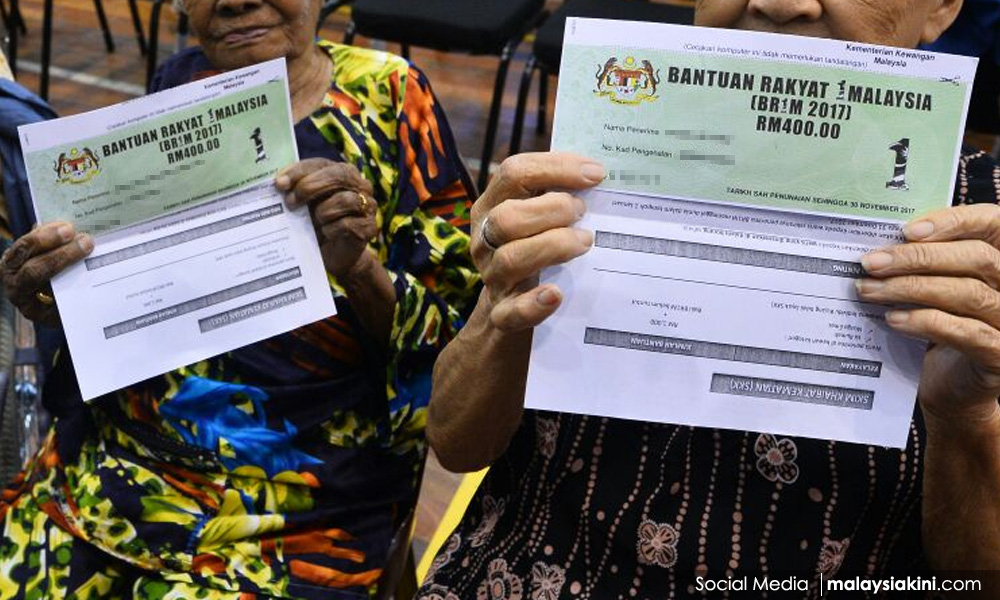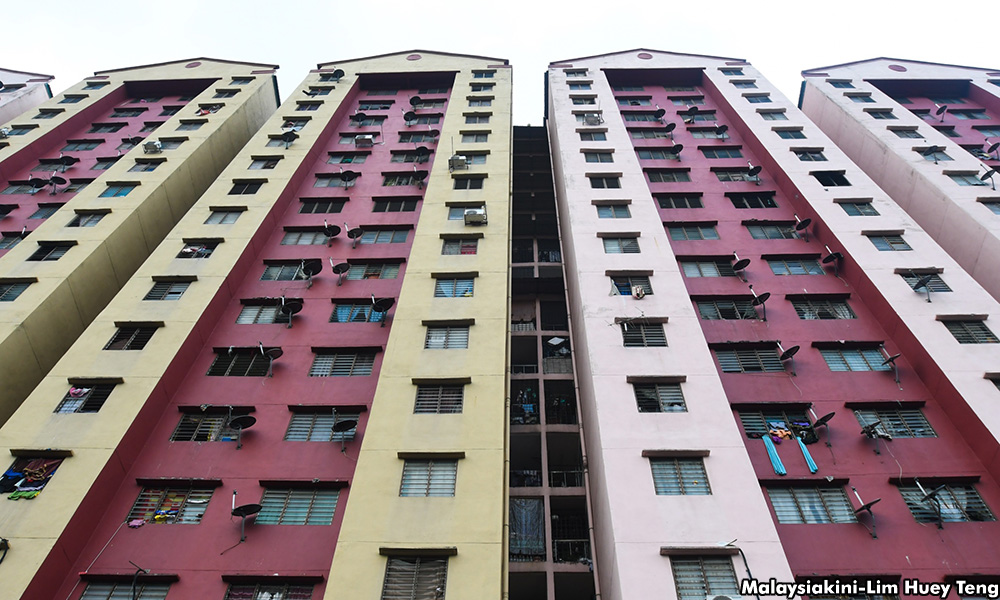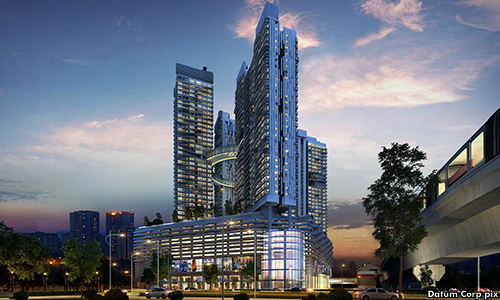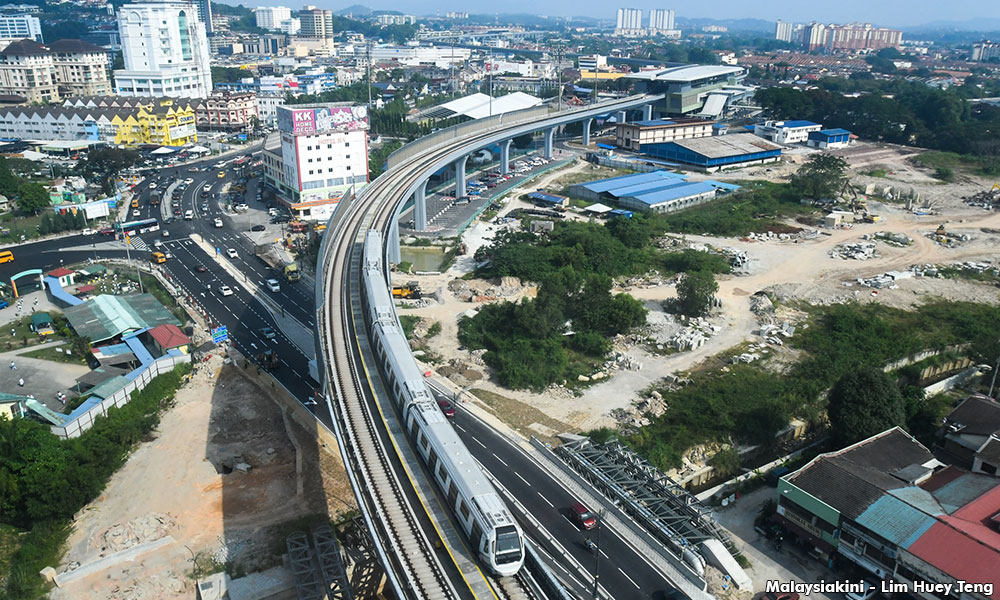COMMENT | The current conflicting views by the Harapan government regarding the 1Malaysia People’s Aid (BR1M) handouts warrants responsible and just resolution.
While the prime minister and his economic minister claim that the BR1M handouts are akin to corruption by the former Najib Abdul Razak-led administration, the fact remains that the previous BN government’s BR1M cash handouts were actually a copy of similar handouts made by the Pakatan Rakyat-led Penang government after 2008.
After the 2008 general election, the Penang government prided itself on a plan to give cash handouts of RM100 annually to every senior citizen aged above 60. It also introduced a scheme to wipe out hardcore poverty by ensuring that every family receives at least RM500 ringgit a month.
Furthermore, BR1M was said to have been the brainchild of the former Bank Negara governor and present adviser to Harapan, Zeti Akhtar Aziz. Surely she has something to say on the subject?
Now the new Harapan government has blamed the tight fiscal situation for stopping the BR1M handouts.
If that is so, let us ensure that this principle is consistently applied to all wasteful and populist splurges, such as the open houses during each festival.
All the same, it behoves us all to construct a system that can alleviate the conditions that afflict our poverty-stricken Malaysians and if possible, bring these marginalised communities into the mainstream of the national economic life.
At least BR1M is colour-blind
If there is one thing to be said for BR1M, it is the fact that at least it is a rare example of affirmative action that is not race-based but based on need.

In fact, soon after the 2013 general election, Mahathir accused Najib not so much for this alleged corrupt practice of free cash handouts, but of pandering too much to the Chinese and of not giving enough attention to the Malays who form the backbone of Umno’s support.
BR1M recipients must declare their assets
Nevertheless, the current system of BR1M handouts is susceptible to abuse. I know because I could qualify for BR1M based on my pension.
But I do not claim BR1M, because I have savings which would place me outside the RM3,000 threshold that entitles me to the free handout. Now how many BR1M recipients have similar savings or other assets but still claim these handouts?
BR1M recipients, like public officials, must be made to declare all their assets and those of their spouses and children. Malaysian public officials are only obliged to declare their incomes and assets, but not those of their spouses and children to whom they bequeath their properties and other assets when they decides to enter the political life.
Likewise, BR1M recipients must sign a declaration that they have declared all their assets and those of their wife and children, and suffer penalties for any false declarations.
A basic living wage
While some economists claim that these cash handouts will lead to higher domestic demand and consumption and stimulate the economy, others are concerned about rising fiscal deficits and inflationary pressures.
They fail to consider the most important factor in all this – the long-term dignity and empowerment of the people in the process of a sustainable national development.
Now, a basic living wage would have positive effects on the lives of the poorest stratum of society, as well as impact the general wellbeing of the economy.

Without a social security system in place, cash transfers can ensure that the elderly are more financially secure and allow them to access health services; low-income women receive child benefits; the poor receive proper dental care; reduce death rates related to addiction.
Examples in other countries show that receiving an assured regular amount of money allows people to plan for the first time and this affects their lives in significant ways.
Ideally, the homeless and the unemployed could be given further incentives by engaging with them in opportunities to perform work that is essential for the community, such as cleaning the streets and parks, recycling work, painting council houses or retrained for other work needed by society. Even if the market does not provide these opportunities, the state can create these jobs for the unemployed.
Progressive taxation
For a sustainable economy and society, lower-income Malaysians require improved social and public welfare services and a host of other reforms.
First, we need fiscal reforms to ensure fair income redistribution by imposing a higher marginal tax rate on high-income earners, an incremental capital gains tax on property, other progressive taxes on wealth and luxury goods, plugging tax loopholes, reviewing capital allowances and tax holidays for foreign firms, regulating and imposing a tax on all international financial transactions and hedge funds.

Secondly, we need to defend workers’ rights and interests by promoting workers’ right to unionise, legislating a progressive living wage for all workers, ensuring full employment, retrenchment and pension fund for all workers, abolishing the contractor system for employment of workers, allowing workers and their trade unions to be part of economic influence and decision-making of enterprises, especially control of their pension funds, promoting self-governing workers’ cooperatives to produce goods that are useful for society.
Thirdly, we need an improved free public healthcare system for all Malaysians by allocating at least 10 percent of the GDP in the annual budget to healthcare; implementing better conditions for doctors, nurses and hospital workers in the public sector, freezing the expansion of private hospitals and preventing the leakages in the public sector to private contractors. providing homes and daycare centres for the elderly and disabled through benefits, support services, including access to mobile healthcare.
Fourthly, we need a people-centred and caring social policy by instituting a housing development board, managed by elected local councils to implement an effective low-cost public housing programme for rental or ownership throughout the country for the poor and marginalised communities, with adequate space for community activities, recreation and green areas, respecting the rights of urban settlers in any development plan to upgrade their area or to rehouse them, prioritising the public transport system in the country while regulating highway construction and car traffic in city and town centres, providing childcare and crèche facilities in all public and private sector companies, and providing rehabilitation facilities for those suffering from substance abuse.

Thus, a race-free basic living wage for the poorest stratum of our society can positively impact the lives of these Malaysians as well as the general economy.
Recipients of this state assistance would have to be properly means tested based on the declaration of their assets. For sure, this will allow people to plan for the first time and help the elderly to be more financially secure, low-income women to receive baby benefit and reduce death rates related to substance abuse.
Ideally, the homeless and the unemployed could be given further incentives by engaging with them in opportunities to perform work that is essential for the community.
Finally, for a sustainable economy and society, the lower income earning Malaysians require an improved social and public welfare services and other reforms funded through progressive taxation of the rich and super-rich.
KUA KIA SOONG is Suaram adviser.
The views expressed here are those of the author/contributor and do not necessarily represent the views of Malaysiakini.

